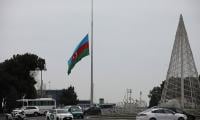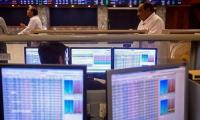KARACHI: Consumer inflation accelerated to its highest in 14 years in July on runaway food prices, stoked by a battered rupee, official data showed on Monday.
Consumer price index (CPI) inflation rose to 24.93 per cent in July, whereas in July 2021, it was recorded at 8.4 per cent, according to data released by the Pakistan Bureau of Statistic. That compares with a 21.3 per cent jump in June. This level was last seen in August 2008.
On a month-on-month basis, CPI-based inflation increased 4.3 per cent in July 2022 as compared to an increase of 6.3 per cent in the previous month, and an increase of 1.3 per cent in July 2021.
Over a decade ago, Pakistan experienced high and volatile inflation in FY2009, where July 2008 CPI increased to 24.3 per cent, and then in August of the same year, it increased to 25.3 per cent. Now in July 2022, it has again reached that level.
Abdul Azeem, head of research at Spectrum Securities Ltd. said inflation will keep on rising as the government eliminates subsidies and keeps energy prices elevated under a commitment to the International Monetary Fund (IMF) to secure $1.2 billion loan tranche.
“The uptrend will continue for a few months as electricity hike is still not reflected and there will be an increase in gas prices too.” Weakened rupee against the US dollar is also straining households and intensifying pressure on the economic planners of Shehbaz Sharif’s government.
High inflation and a weakening rupee are also fast eroding the purchasing power of millions of Pakistanis, especially fixed-income households that spend over one-third of their earnings on purchasing food and near a fourth on house rent and utility charges. Food inflation in July rose by 28.77 per cent and utility charges and fuel by 21.8 percent over a year ago.
Despite State Bank’s 800 basis points discount rate hike in FY22, from 7 per cent in July 2021 to 15 per cent now, inflation is skyrocketing. The central bank is once again preparing for another rate hike amid a surge in global commodity prices, rising import bills and falling currency value. Some independent economists are critical of the central bank’s policy of aggressive quantitative tightening. They say it would hit the country’s growth instead of controlling inflation.
The statistical office further reported that in July 2022, prices rose at an accelerated pace of 64.73 per cent for transport charges against 8.24 per cent in July 2021. Food and beverage prices increased 28.77 per cent against 8.24 per cent in July 2021, restaurants and hotels up 25 per cent (8.5 per cent in July 2021), and alcoholic beverages and tobacco went costlier by 22.5 per cent in July against 3.14 per cent a year ago.
Similarly, house rent and utility charges (water, electricity, gas, and fuels) in July this year were 21.8 per cent expensive. In the same month last year, these had risen by 9.2 per cent. Furnishing and household equipment maintenance charges went up 19.7 per cent against 9.8 per cent last year, recreation and culture 15.4 per cent (5.9 per cent a year ago), clothing and footwear 14.57 per cent (9.46 per cent), health charges 11.22 per cent (8.6 per cent), education charges up 9.8 per cent against 2.04 per cent in July 2021.
Interestingly, the wholesale price index (WPI) increased by 38.5 per cent during the month against the increase of 38.9 per cent in June 2022 and an increase of 17.3 per cent in July 2021. WPI inflation on a month-on-month basis increased by 2.0 per cent in July 2022 as compared to an increase of 8.2 per cent a month earlier and an increase of 2.3 per cent in July 2021. Since WPI inflation has a lag effect on CPI inflation, with this sharp increase, in the coming months, a further increase in CPI cannot be overlooked.
Weekly sensitive price indicator (SPI) also increased 28.2 per cent in the month under review compared to an increase of 21.7 per cent last month and 16.2 per cent in the same month a year ago.
Since May 26, when the government started eliminating fuel subsidies to revive the stalled staff-level programme with the International Monetary Fund (IMF), inflation has skyrocketed. Interestingly, the already decided increase in electricity base tariff of Rs7.91/unit has not been fully incorporated in the prices and then inflation. Once it is incorporated, inflation could go further high.
According to the CPI data, urban inflation increased 23.6 per cent yearly in July 2022 compared to 19.8 per cent in June and 8.7 per cent in July 2021.
Similarly, rural CPI increased 26.9 per cent on a year-on-year basis in July 2022 compared to an increase of 23.6 per cent in the previous month and 8.0 per cent in July 2021. Over the last month, urban inflation increased by 4.5 per cent and rural by 4.2 per cent.
Urban core CPI (excluding the food and energy components) increased by 12.0 per cent YoY in July 2022 against an increase of 11.5 per cent in the previous month and 6.9 per cent in July 2021. Likewise, rural core CPI increased 14.6 per cent YoY in July 2022 compared to 13.6 per cent in the last month and 6.9 per cent in July 2021.
In a span of one month, vegetable prices increased 25.14 per cent, with pulse gram up 13.87 per cent, onions 13.65 per cent, potatoes 10.87 per cent, besan 10.01 per cent, wheat 9.76 per cent, maash 9.73 per cent, pulse masoor 9.01 per cent, tea 8.98 per cent, eggs 8.09 per cent, cooking oil 7.66 per cent, wheat flour 6.34 per cent, gram whole 5.36 per cent, rice 5.16 per cent, vegetable ghee 5.11 per cent, milk 3.84 per cent and pulse moong up 2.67 per cent over last month.
Over the previous month, electricity charges increased 39.35 per cent, motor fuel 7.35 per cent, construction input items 3.18 per cent, washing soap/ detergents/ match box 2.45 per cent, cotton cloth 2.21 per cent, liquefied hydrocarbons 1.99 per cent, electrical appliances 1.48 per cent, plastic products 1.40 per cent and furniture and furnishing 1.30 per cent.
Five thousand kilogrammes of hashish, heroin, bhang and ice worth Rs2,634.44 million were destroyed
Programme approved during recent UAE government annual meetings under directives of Emirates Genome Council
Atta Tarar congratulated Pakistan team on winning ODI series against South Africa
PIA spox says airline was working to rejuvenate its aircraft, bringing them back into operational fleet
Authorities confirm driver’s death, saying he “committed suicide while the train was moving”
Murad stresses need to protect country from external conspiracies, in line with Jinnah’s vision







